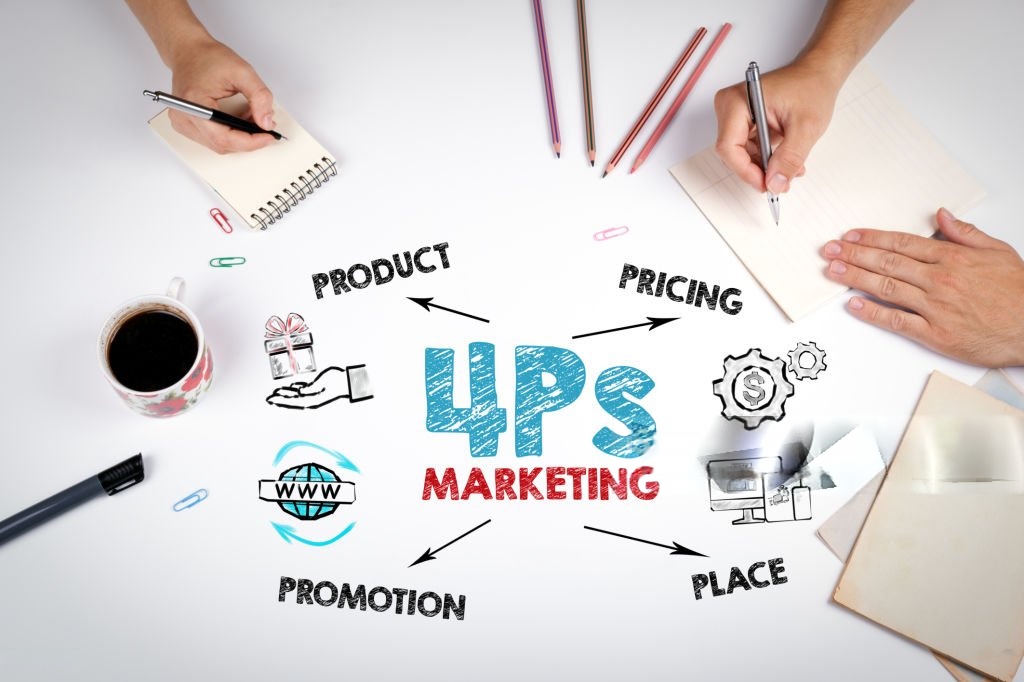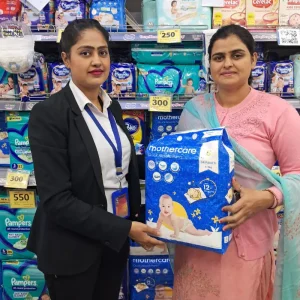In today’s fast-paced, omnichannel retail world, marketing campaigns are the engine that drives brand awareness, product sales, and customer loyalty. From a simple email blast to a nationwide retail activation, campaigns are how businesses connect with their target audience in a meaningful and measurable way.
A marketing campaign is a coordinated series of actions aimed at promoting a product, service, or brand across specific channels and for a defined goal. These campaigns are no longer confined to digital ads or print promotions—they now span social media, retail outlets, field teams, and even influencer networks.
Industries like Sales Promoters, Merchandisers, and Retail Visibility Audits are essential for executing and tracking campaigns on the ground. Whether you’re launching a new FMCG product or promoting a seasonal sale, campaign execution is a combined effort between strategy, data, and human engagement.
What Is a Marketing Campaign?
A marketing campaign is a structured plan of promotional activities designed to achieve a specific business goal—be it increasing sales, improving brand recognition, or re-engaging existing customers. Unlike general marketing, which is ongoing and broad, a campaign is time-bound, goal-oriented, and tactically executed.
Each Campaign Typically Includes:
- A clear objective (e.g., product launch, festival push)
- Defined target audience
- Chosen channels (digital, retail, OOH, etc.)
KPIs to measure performance
For example, a brand launching a new health drink might initiate a campaign that includes influencer endorsements (online), in-store demos by sales promoters (offline), and real-time audits to ensure promotional compliance.
Effective campaigns often connect with broader brand goals like channel activation or sales process management, ensuring synergy across all customer touchpoints.
Why Marketing Campaigns Matter in 2025
As consumer expectations rise and attention spans drop, the importance of well-planned marketing campaigns grows significantly.
Here’s Why They Matter Now More Than Ever:
- AI-Driven Personalization: In 2025, AI tools will allow hyper-targeted messaging, personalized offers, and real-time customer engagement, making campaigns smarter and more impactful.
- Retail Visibility Audits: These audits ensure the brand message is delivered consistently across locations and formats, providing data to improve campaign execution.
- On-Ground Support: Sales promoters and merchandisers act as campaign ambassadors, executing promotions, improving product visibility, and collecting feedback from customers.
In short, a successful campaign today must blend data, creativity, and real-world activation.
Types of Marketing Campaigns
There are several types of marketing campaigns, each designed for different objectives and platforms. Understanding them helps marketers choose the right mix for maximum ROI.
A. Digital Campaigns
Digital Marketing Campaigns Include:
- Email marketing
- SEO (Search Engine Optimization)
- Social media campaigns
- PPC (Pay-per-click) advertising
Example: A festive season campaign by an electronics brand, targeting urban consumers with discount codes through Instagram ads and email newsletters.
B. Retail Activation Campaigns
These Are In-Store or Field-Led Campaigns, Such As:
- Product demos
- Shelf branding
- Promoter-led sampling
Example: An FMCG brand runs a sales promoter-led campaign in malls to offer free samples and conduct live demonstrations during weekends.
C. Product Launch Campaigns
These Campaigns Introduce a New Product to the Market and Include:
- Sampling through promoters
- Merchandising kits
- Launch events and influencer tie-ups.
Example: A cosmetic brand rolls out a new face cream with branded counters in beauty stores, staffed by trained promoters.
D. Brand Awareness Campaigns
Designed to establish or strengthen brand identity. These are typically long-term and may involve:
- Storytelling via social media
- Outdoor campaigns (OOH)
- Influencer partnerships
Example: A mobile brand runs a 3-month campaign with billboards, YouTube ads, and retail visibility drives across Tier 1 cities.
E. Seasonal Campaigns
These campaigns target high-traffic times like holidays and festivals.
- Diwali, Eid, Christmas, Back-to-School
- Combo offers, discounts, bundled merchandising
Example: A fashion brand launches a Diwali Sale across eCommerce, Instagram, and pop-up retail with dedicated festive branding.
These types of marketing campaigns allow brands to reach audiences in contextually relevant and cost-effective ways.
Role of Sales Promoters & Merchandisers in Campaign Success
No matter how good a marketing plan looks on paper, success often depends on the ground crew.
Sales Promoters:
They bring campaigns to life in stores and public spaces. Their responsibilities include:
- Engaging with customers
- Demonstrating products
- Increasing conversions
During large-scale activations, such as mobile launches or festive promotions, sales promoters are the human face of the brand.
Merchandisers:
They Ensure Visual Consistency and Brand Presence By:
- Setting up in-store displays
- Maintaining planogram compliance
- Replacing outdated promotional material
Example: During IPL season, a beverage company may push a cricket-themed campaign with customized shelves and cooler branding, executed by its merchandisers.
Together, they ensure that a marketing campaign doesn’t just exist—it performs.
Retail Visibility Audits and Sales Process Management
To track whether campaigns are being executed correctly, brands rely on retail visibility audits.
These Audits Check For:
- Correct signage
- Planogram compliance
- Product availability
- Sales promoter performance
Tools & KPIs:
- Mobile apps with geo-tagged photo uploads
- Dashboards tracking engagement rate and shelf share
- Alerts for out-of-stock or misplacements
On the Backend, Sales Process Management Ensures:
- Inventory is aligned with promotions
- Sales teams are briefed
- Reporting is timely
When audits and processes work together, campaigns deliver real ROI.
Channel Activation Strategies That Amplify Campaign Impact
A campaign can only go so far without the right distribution and outreach strategy. That’s where channel activation steps in.
Key Strategies:
- Multi-Channel Rollouts: Integrating digital + retail + influencer channels
- Regional Language Creatives: Adapting messaging for local markets
- Retailer & Promoter Training: Ensuring everyone understands the campaign goals
These strategies ensure deeper market penetration and better message recall.
Successful Marketing Campaign Examples in India (2024–2025)
FMCG Brand’s Rural Activation
A food brand deployed 1,000+ promoters across rural towns to distribute samples, run demos, and build brand trust.
Tech Brand’s Hybrid Campaign
A new smartphone was launched with digital pre-booking, in-store trials, and YouTube influencer reviews.
Retail Audit-Backed Fashion Campaign
A fashion retailer used real-time audits during its “Winter Festive Sale” to ensure promo compliance and optimize shelf stock daily.
These examples show how marketing campaigns thrive when supported by field teams and tech.
How to Plan a Winning Marketing Campaign
A successful campaign starts with a solid plan.
Here’s a Quick Checklist:
- Define the Objective: Awareness, sales, sampling, etc.
- Choose the Right Campaign Type: From digital to retail activation
- Identify Execution Partners: Sales teams, promoters, merchandisers
- Track Performance: Use audits, dashboards, and feedback loops
With the right structure, every campaign can drive measurable impact.
Conclusion
In 2025, marketing campaigns are no longer isolated ad bursts—they’re strategic, data-backed, and execution-led programs that deliver value.
Campaign success hinges on alignment between the brand, field teams, channel partners, and technology.
By understanding the types of marketing campaigns, empowering on-ground teams, and auditing performance in real time, brands can truly own the retail and digital battlefield.
Frequently Asked Questions
1. What are marketing campaigns?
Marketing campaigns are coordinated promotional efforts aimed at achieving specific business goals, like product launches, awareness, or customer acquisition.
2. What are the different types of marketing campaigns?
They include digital campaigns, retail activation, product launches, brand awareness drives, and seasonal campaigns.
3. How do sales promoters help in a marketing campaign?
They engage with customers directly, drive in-store conversions, and ensure campaign materials are properly displayed and used.
4. What is the role of a retail visibility audit?
Retail audits help monitor campaign execution at the store level and provide data for course correction.
5. What makes a marketing campaign successful?
Clear objectives, strong messaging, effective execution, and real-time performance tracking all contribute to campaign success.




